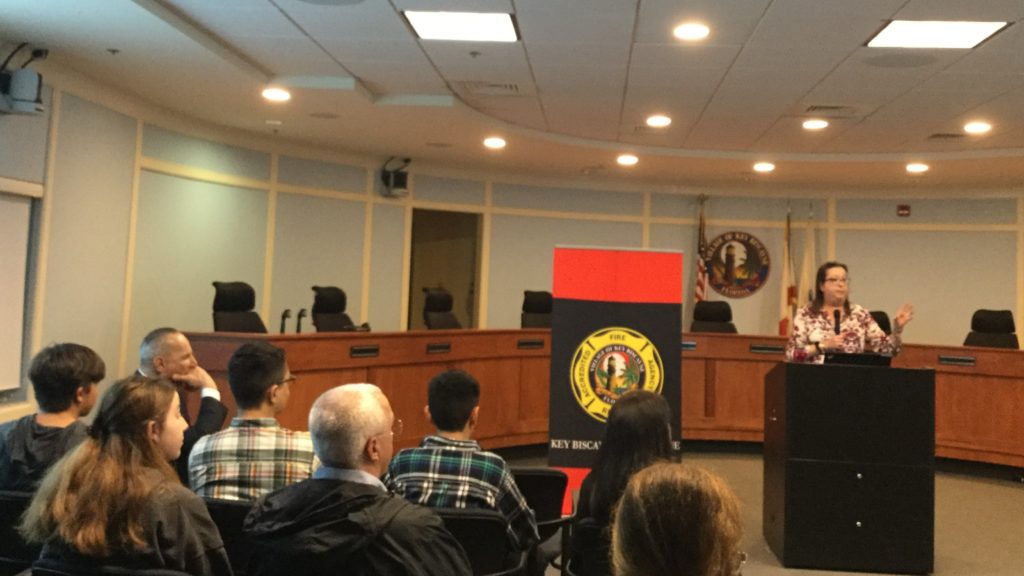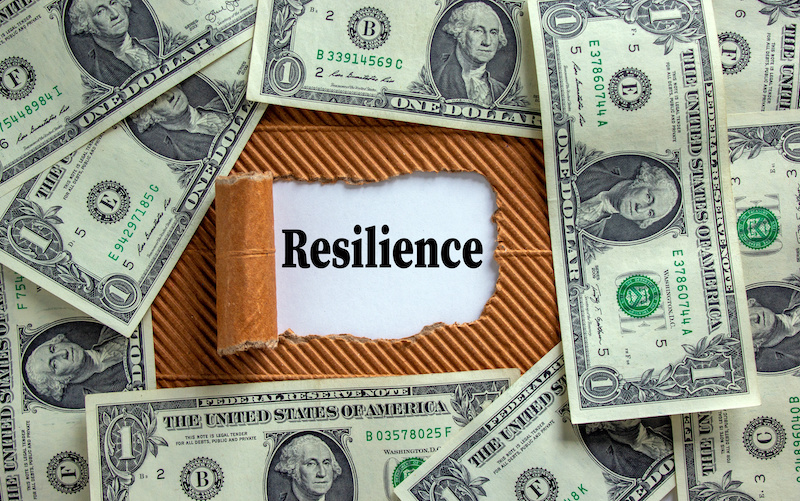Teen Talks: How risky behaviors affect the emotional development of our children
Maria IriondoJanuary 2, 2020

Mental Health Counselor Ana M. Moreno speaking to the Dec. 2019 Teen Talk audience (Maria Iriondo via Key News)
Teenagers and young adults struggle with impulse control and delayed gratification, making them more vulnerable to substance abuse, according to Mental Health Counselor Ana M. Moreno. They’re in a constant search for “the happy juice,” or dopamine release, she explained.
“That’s when they get in trouble. The brain becomes hijacked,” said Moreno, a therapist who specializes in treating addictions, which can produce anxiety and depression.
At the December Teen Talk, sponsored by Fire Chief Eric Lang, Moreno took the audience on a tour of the brain and explored effects on the emotional development of adolescents and young adults.
“The amygdala, the size of a walnut, stores their emotional memories,” she explained. “It also stores their ability to fear, which is why they usually follow the ‘it will never happen to me’ train of thought. The fear factor doesn’t kick in until our early 20s.”
The executive function, which allows us to think of the consequences before we act, is the last skill to develop.
“Car insurance rates for young drivers drop at the age of 25 because insurance companies wait for the full development of the executive function. It’s also part of the reason the drinking age is 21,” Moreno pointed out.
Alcohol, tobacco, marijuana and other drugs become serious threats during teen and young adult years. Although cigarette smoking among teenagers has declined, it’s been replaced with vaping, which can lead to nicotine addiction and even lung damage and death when combined with other chemicals.
Moreno said it’s a parent’s responsibility to help their children learn how to develop the executive function. The job includes identifying signs of substance abuse, teaching them how to self-regulate and modeling good behavior.
“Don’t do for them what they can do for themselves,” she advised. “Don’t rescue them from their feelings. Teach them to cope with them. Set rules and consequences for breaking the rules. And remember, say what you mean, mean what you say and don’t say it mean.”


